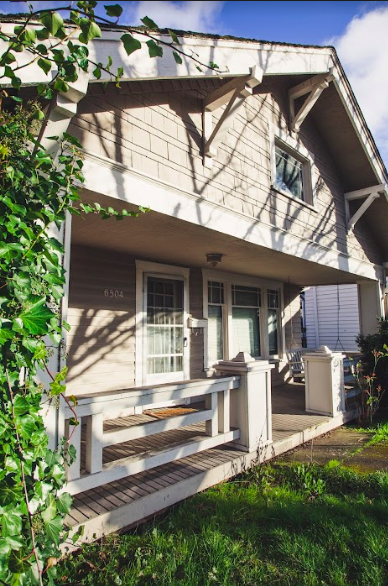Purchasing a second home can offer advantages for homeowners looking to stay in a different location for a while. Those who live somewhere that gets too cold during the wintertime can enjoy the sun’s warm rays in a sunnier locale, or big city property-owners can experience life on the beach or in the country.
Secondary homes can also be beneficial when it comes to earning income. Turning your secondary home into a vacation rental or AirBnB for part of the year can be a good way to earn passive income.
How do you prepare to purchase a secondary property? You need to be aware of all of the financial requirements and factors so that you can go into the process with confidence. Here’s what to know about second home mortgages.
[Related: Eight Compensating Factors for Mortgage Approval]
Down Payments and Interest Rates
When it comes to approving down payments for a secondary home, lenders are typically more cautious.
These purchases tend to be viewed as a higher risk to lenders since it isn’t the borrower’s primary residence. In the event of financial hardship, secondary home mortgages have a greater chance of defaulting. This is why a higher down payment for a second property is required.
The same goes for interest rates. According to requirements established by Fannie Mae and Freddie Mac, down payments should be at least 10-15%, and interest rates may be up to 4% higher than on your initial mortgage.
[Related: Mortgage Options With Low (or No) Down Payments]
Debt-to-Income Requirements
Just like when applying for your first mortgage, a second home mortgage will need you to meet specific debt-to-income (DTI) requirements to qualify.
DTI is your monthly debt paired with your gross monthly income, and is calculated by adding up the debts you pay and dividing them by your monthly pre-tax salary. This shows lenders if you’ll be able to afford your payments month after month, so the lower your DTI, the better.
According to Quicken Loans, most lenders require a DTI of 43% or less for second mortgage approval. A high DTI means you’ll end up paying a higher interest rate, or simply not get approved.
Tip: To lower your DTI, consider debt consolidation, paying off your other loans and credit cards, and finding new ways of earning additional income.
[Related: A First-Time Buyers’ Guide to the Process of Purchasing a Home]
Cash Reserves
If your debt-to-income ratio is high, you might be able to make up for it by having a great credit score and several months of cash reserves. Reserves are funds readily available to pay your monthly mortgage bill if your normal income is interrupted.
For secondary mortgages, cash reserves should be enough to cover payments on both your primary residence as well as your future secondary property. Most lenders want second mortgage applicants to have at least two to six months of reserves.
Credit Score Requirements
Before applying for any sort of loan or credit approval, it’s a good idea to be aware of your credit score.
Your credit score will determine the loans and rates that you qualify for, and it varies depending on where it is pulled from. Your credit score from TransUnion, Equifax, or Experian can vary by 100 points, so knowing your average score and actively trying to improve it will help you when it comes to loan approval.
The higher your score, the easier it will be to get approved for a second home mortgage — so remember, review your credit report before applying for mortgages to check for any errors. In 2021, more than one-third of Americans found at least one error on their credit report, according to a Consumer Reports investigation.
[Related: Think You Know How to Find Your Credit Score? Think Again]
Second Home Property Requirements
In addition to the financial requirements you need to qualify for a secondary home mortgage, the property in question also needs to meet certain guidelines as well. Fannie Mae and Freddie Mac have the following property requirements for second home mortgages:
- The property must be occupied by the owner for a portion of the year.
- Secondary mortgages are only good for one-unit homes.
- The property should belong solely to the buyer and not under any timeshare agreements.
- The property cannot be operated by a management company that has control over occupancy.
[Related: The Best Financing Options for House Flipping]
Alternatives to Secondary Mortgages
If financing a secondary residence via a mortgage loan isn’t going to work out for you, you can also look into alternatives for financing.
One option is to tap into your primary home’s equity. Getting a home equity loan or home equity line of credit (HELOC) on your main house can allow you access to up to 80% of your equity without impacting your original mortgage rate.
Although home equity loans tend to have high interest rates, you can use them for a variety of things, including purchasing a secondary residence. The National Association of Realtors® reports that about one-fifth of buyers tap into primary residence equity to make a down payment on their second home.
Unfortunately, the U.S. government does not assist with home loans for anything other than your primary residence.
[Related: In a Hurry? Tips to Close Your Mortgage Quickly]
Contact Seattle Mortgage Planners Today!
Are you interested in finding out more about your second home mortgage options? Do you need to know how to make the process as smooth as possible? Seattle Mortgage Planners is your stop for all of your mortgage and home-buying resources.
Contact us today and let’s get started.

